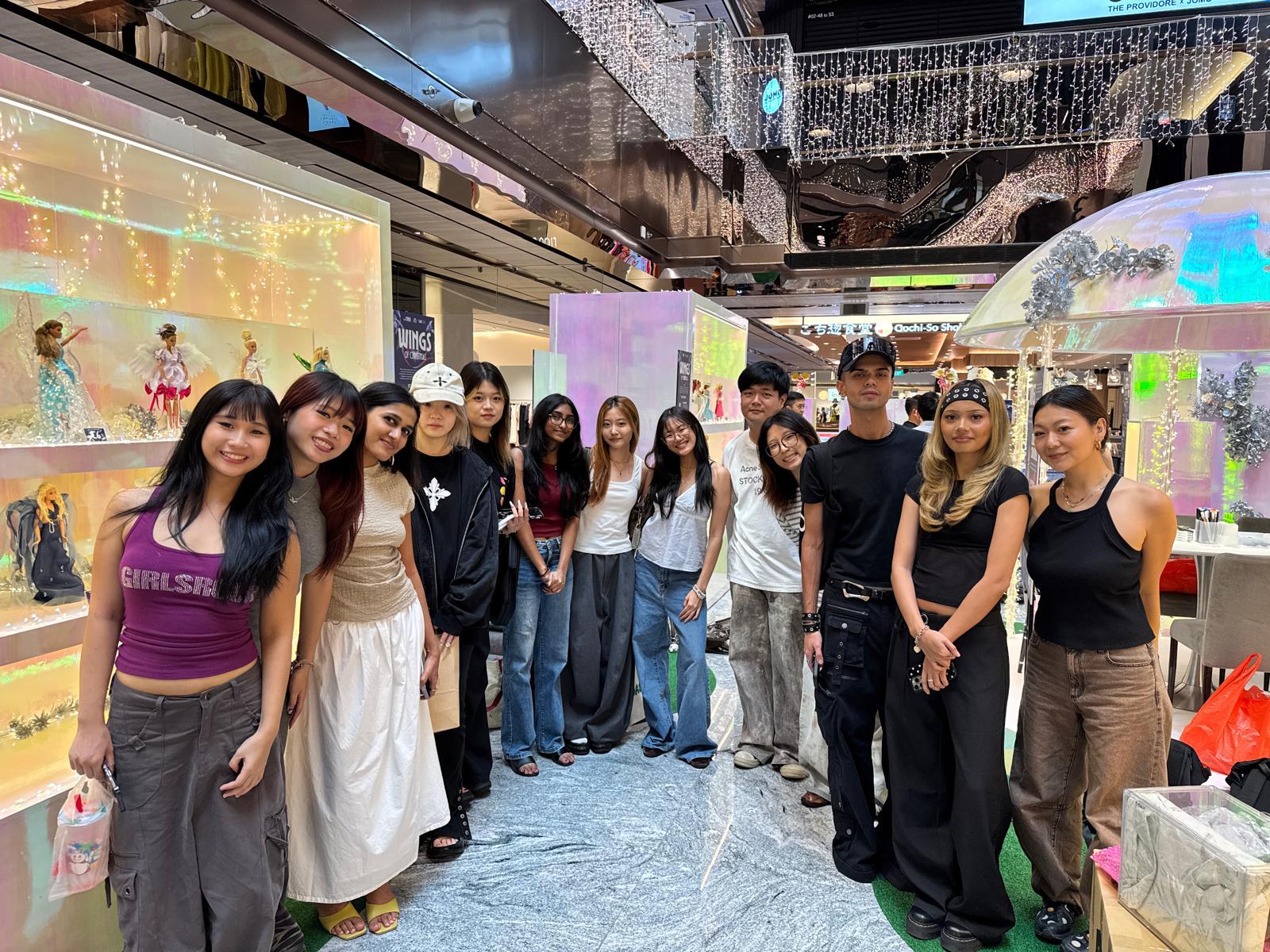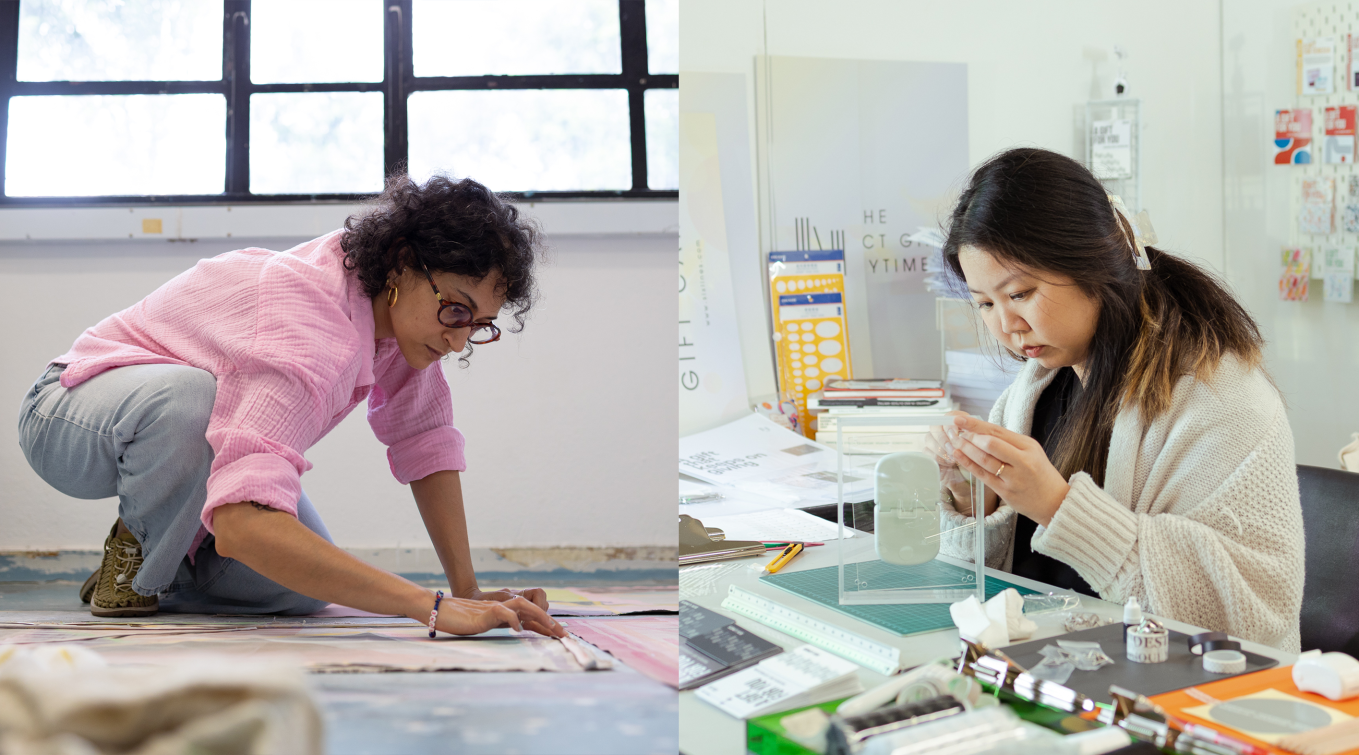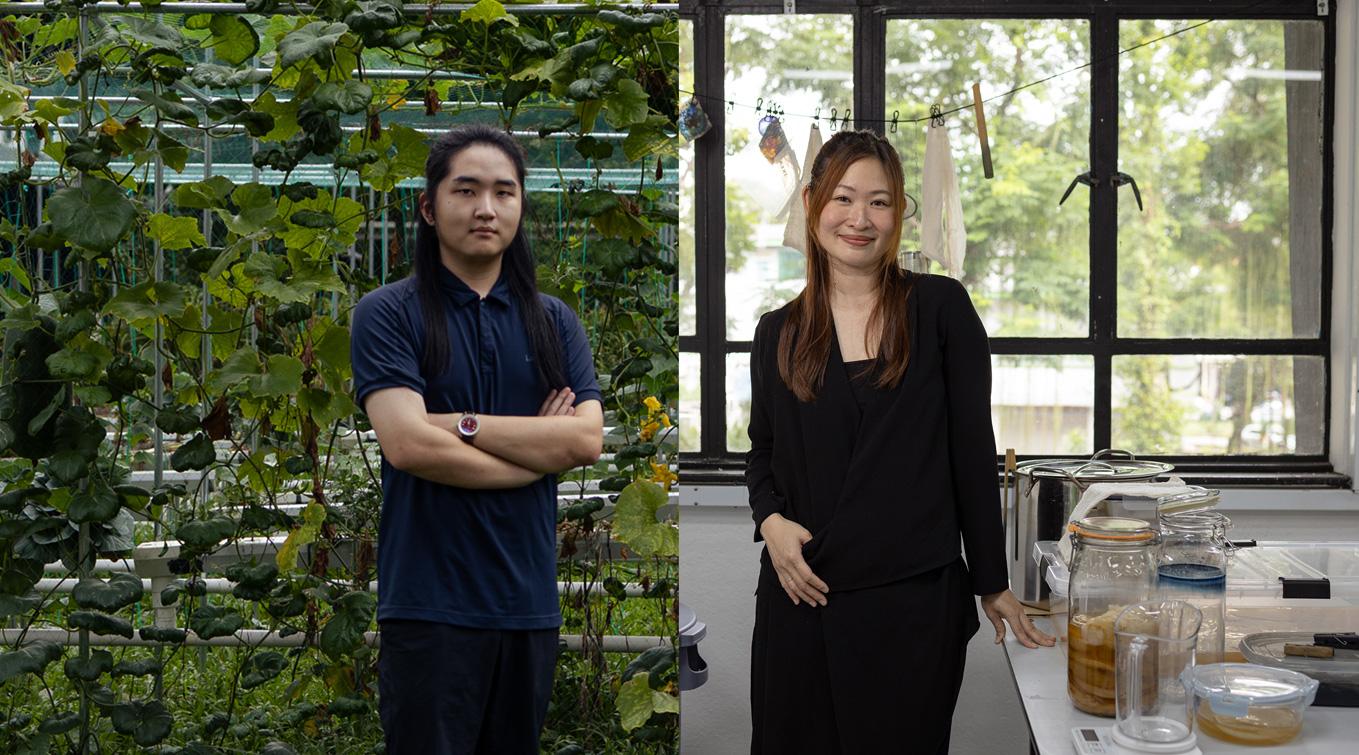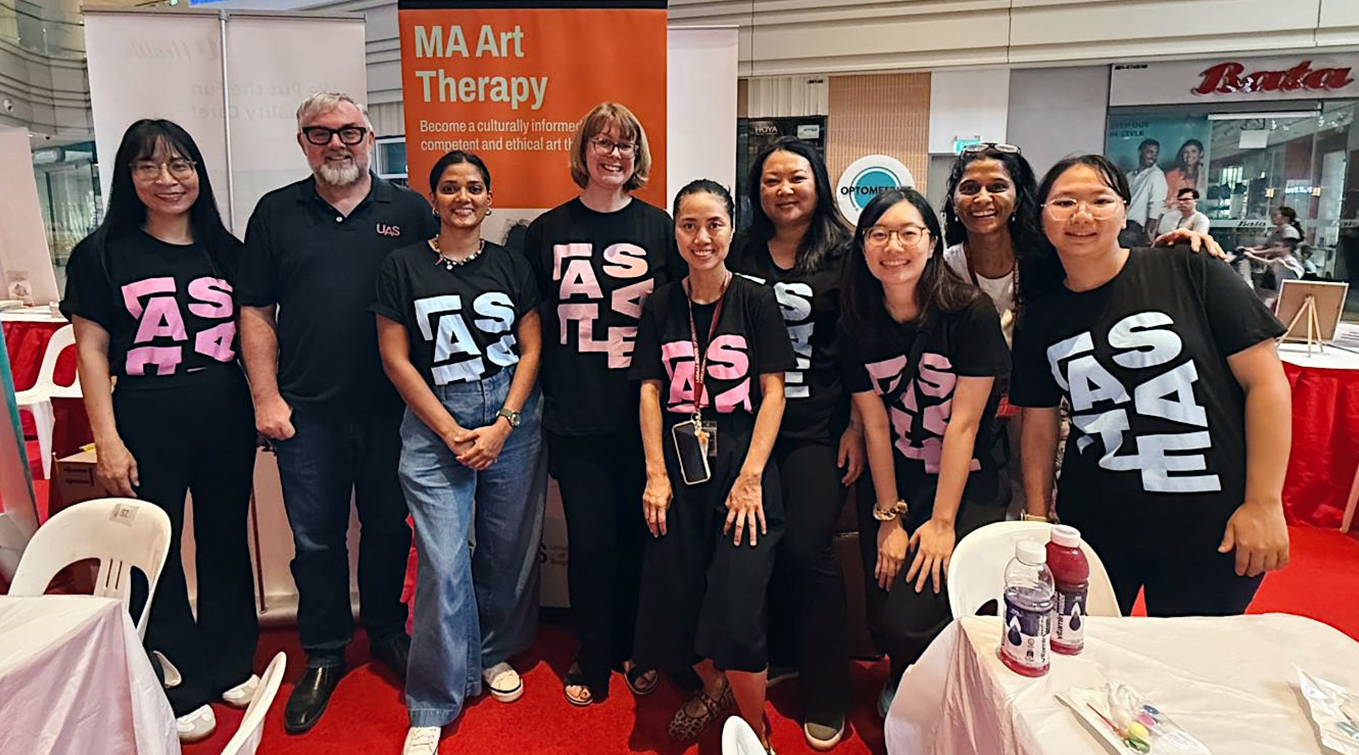In conversation with: Marcus Yuen on creating provocative work that stands out

In an attention economy where a glut of media and messages compete for our eyeballs every day, what does it take to tell stories that connect with people, while still meeting the needs of a client’s brief?
Since graduating from LASALLE in 2012, McNally Award for Excellence in the Arts winner Marcus Yuen has worked on acclaimed advertising campaigns that demand one to sit up and pay attention. From a viral Halloween campaign for IKEA Singapore that was also a loving homage to Stanley Kubrick’s The Shining, to integrating interactive storytelling into dating app Tinder, Marcus’ campaigns have succeeded both commercially and critically. Swipe Night, the campaign for Tinder for which Marcus served as creative lead, recently won an Entertainment Lion Grand Prix and was also shortlisted for a Titanium Lion at the prestigious Cannes Lions International Festival of Creativity.
Having amassed such an impressive portfolio in under ten years, it is little wonder that Marcus is now the 17th most awarded art director in the world, according to a ranking by trade publication The Drum. We checked in on Marcus, currently a Senior Creative at Wieden + Kennedy New York, and asked him about awards, virality and the necessary skills for aspiring advertising creatives today.
You have an incredible body of work. Is there a campaign that has a particularly special place in your heart?
Thank you. I’ve been incredibly lucky in my career so far because very often, the best work might not be the one that gets bought and produced. I got the chance to work with incredibly talented and smart people and that really made my life easier in many ways.
A campaign that has a special place in my heart would be Tinder Swipe Night. I personally had a ball of a time working on it. From selling and evolving the idea over the course of many months, to working with Hollywood writers to draft up a four-episode interactive TV show, and living in Mexico City for almost a month for the duration of the shoot. Every part of the process was a new and exhilarating experience for me. Even though I pretty much worked every single day for eight months and was never more stressed in my life, it was so fulfilling to see such positive reactions around the campaign. I also got to meet and work with a bunch of amazing and talented people – some of whom have become close friends.
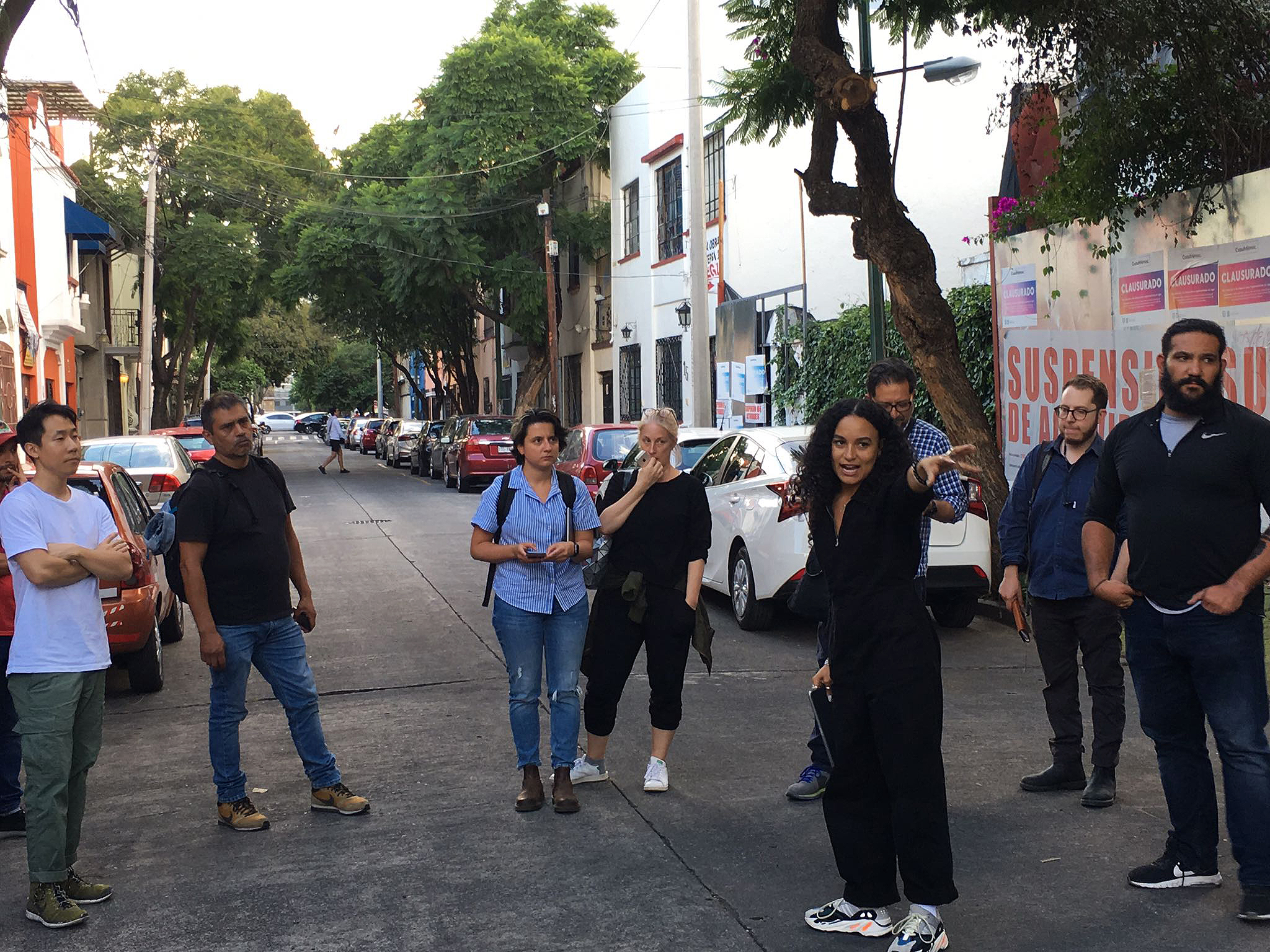
Marcus (first from left) in Mexico City with the creative team and crew for Tinder’s Swipe Night.
Many campaigns in your body of work have gone viral. To what extent is that virality something that you consciously work towards in the process of conceptualising campaigns?
Strangely enough, making a piece of work viral isn’t something that I consciously think about when I’m conceptualising campaigns. I would say I’m lucky that a few of my works have made headlines and gotten good, organic PR, because you can’t predict if a piece of work will go viral. If anything, I would always ask myself if the work is cool or provocative enough, because it needs to stand out from a sea of content that’s fighting for your attention 24/7.
You’ve worked with a stellar list of brands and agencies and won numerous awards, how do you balance creating great work that sells products as well as wins awards?
I personally feel that the mindset of creating work purely just to win awards sets you on a slippery slope towards an unfulfilling career, because you’re basically letting a room of judges tell you if you’re good or not. That being said, awards are a great benchmark for creativity in advertising and it does give creatives an incentive to do the best work possible. For me, the work always starts from trying to nail a brief in an unexpected way and giving the clients what they need, instead of what they want. If the work is great, then we’ll consider submitting it for awards because the submission process is a lot of work!
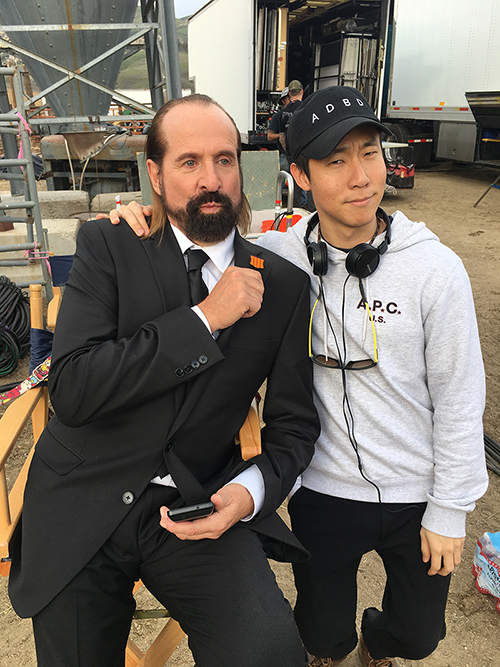
Marcus with actor Peter Stormare behind the scenes of the campaign
Call of Duty: The replacer did it (2019)
What are the greatest takeaways from your time as a student that has left a lasting impact on your advertising ethos?
School has taught me the importance of collaboration and being open minded about others’ perspectives. As a creative in advertising, you can’t be siloed because advertising is mass communication, so opinions are important. Though I would say there should also be a healthy limit on the amount of key collaborators and voices.
Another thing that I appreciated about LASALLE was the industry connections that the school had. We had alumni returning as guest lecturers as well as notable names in the industry coming in to critique our work during the semester and at our graduation show. These networking opportunities helped me land my first job in advertising. All those experiences inspired me to give back by regularly speaking and mentoring students and fresh graduates from schools in Singapore and the US.
What skills do you think fresh graduates today need if they want to work in advertising? And what do you think is the future of advertising in the new world?
This is a great question. Back when I graduated, it was a trend as a junior, to be able to conceptualise, art direct, write, design and edit great case study videos, the whole shebang. Today, I feel like bringing a different point-of-view and showing that you can think in a fresh way are more important than all the technical skills. The good agencies, in my opinion, hire for potential, not experience. Agencies are also definitely looking out for creative people outside the industry, because we’re constantly trying to make stuff that doesn’t feel like an ad.
The question about the future of advertising is a tough one to answer, because we’re still trying to inch back to normalcy, so everything is still up in the air. What I can predict is that remote working is here to stay as it has been proven to work. That would mean that agencies can pull in more diverse talent from around the world, so work would probably feel more global and less cookie-cutter.
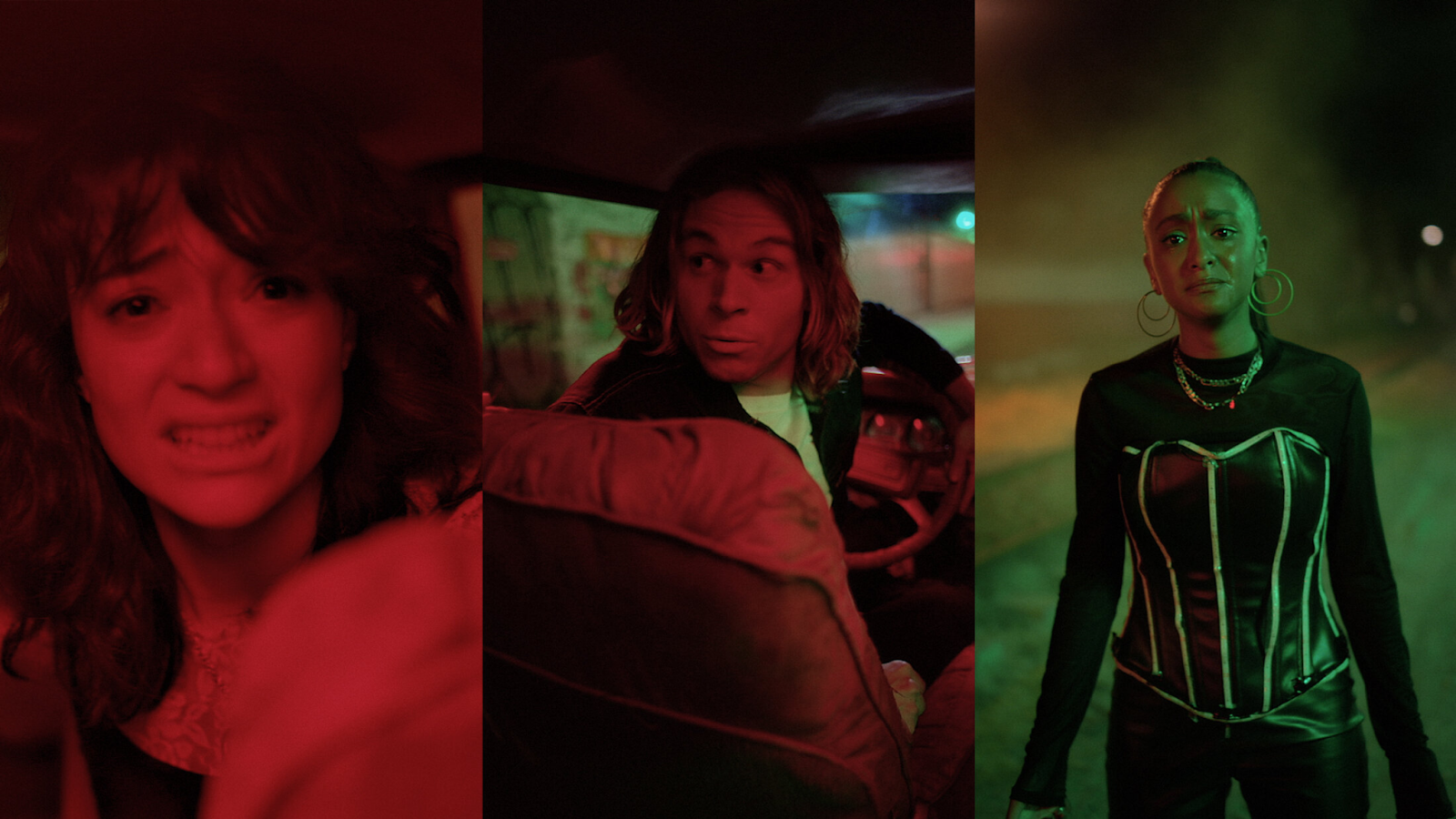
Stills from Swipe Night (2020), a micro series which allows app users to use Tinder’s famous ‘swipe’ gesture to make decisions that can influence the narrative. Users can then see choices other Tinder users have made and swipe to find a match.
What inspires your creativity?
Life itself is by far the biggest source of inspiration to me. Having rich life experiences would definitely unlock ideas that are truly unique to you. I’m also a big film fan and have always looked to that medium for inspiration as well.






